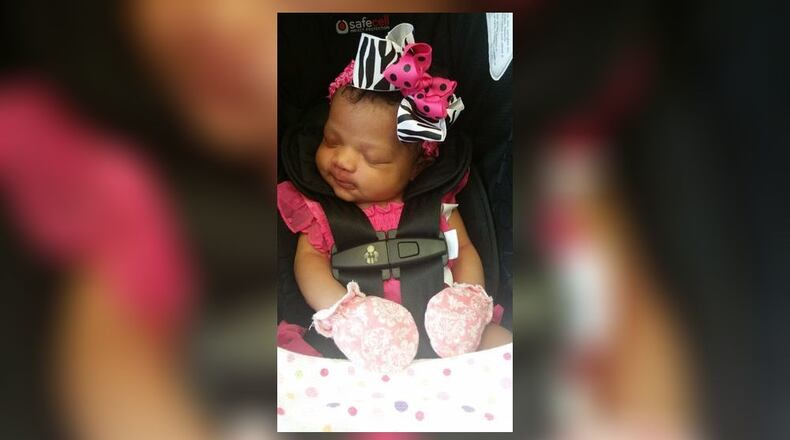“A nightmare” is how her mother Kortni Alston described finding her daughter not breathing, then calling 911. “It was like a movie and I was watching it play out.”
There was a pause on the phone.
“That began the sadness for me,” she said.
Then Alston, mother of three sons, was introduced to a woman who told her about the Help Endure A Loss (HEAL) program at Atrium Medical Center in Middletown. She was invited to attend a meeting, and if she wanted, share her story with others.
She remembers driving alone from her Dayton home to Atrium that first time. She met Sheree Young, an OB nurse who founded HEAL in 1998. Alston said she immediately felt part of the HEAL program that provides counseling and other services free of charge to families throughout the region, not just those who delivered or received care at Atrium.
“It’s been very therapeutic for me,” said Alston, who has remained active in the program. “Truly helped me through the process."
She often tells her story as a way to connect with other grieving parents. Let them know they have a partner.
“I found a purpose in my pain,” she said. “I learned there is a tomorrow.”
Then, some nights alone in the dark, doubts filled her mind.
“Questioned everything," she said. “Should I smile? Should I laugh? Should I be seen in public? My daughter died. Why should I be happy? I truly remember shutting down. But I told myself, ‘It’s time to crash or go.'"
Ed Bastien, manager of pastoral services at Atrium, said Alston’s feelings are similar to other women he has counseled after a crisis.
“It begins with an incredible tragedy where the pain is deeper than words,” he said of losing an infant. “From that, if you’re able to keep walking forward, you find that there can be meaning in it. Even joy in what is a horrible pain. These lives, no matter how briefly we had them, not only changed us, but made an impact on the world.”
In ministry, the “most powerful words” you can speak are “I know how you feel,” he said. But only if spoken with integrity.
“A shared burden is an easier one,” he said.
Alston, 41, and her husband, Steven, 44, weren’t sure if they wanted to have more children after Shiloh’s sudden death. Then two years ago, Jasir, their fourth son, was born. He is a “rainbow baby,” one who follows the loss of a child.
As part of the HEAL program, there is a Memory Garden located behind Atrium Medical Center. In recognition of this month’s Pregnancy and Infant Remembrance Day, Atrium employees painted about 150 kindness rocks that included names of infants or the unborn who have died. The rocks are sprinkled around the garden.
Throughout October, the community is invited to walk Turner Trail, a 1.3-mile paved path surrounding the hospital and featuring several gardens and reflection spaces. The HEAL Memory Garden features the Angel of Hope monument, a nationally recognized symbol of hope and healing.
As Bastien stood in the garden, he was asked what he would tell someone going though the loss of a pregnancy or infant: “There is a sound when somebody loses a child that words can’t describe. It impacts the soul of everybody who hears it. And there is nothing that will ever fix that. But what will happen is when people continue to walk forward, if people reach out and receive help, then that open wound will become a bruise where it only hurts if you touch it.”
Melinda Mintkenbaugh, the third HEAL coordinator since 1998, said her goal is to help families “navigate” through the grieving process that differs for every parent.
“I can’t make this better but I can make sure they don’t walk it alone,” she said.
When asked to compare the loss of an adult to that of an infant, she said: “Grieving for the future. All the things you had in your mind like dancing with your daughter on her wedding day, going to graduation, all those things that will never happen.”
Shiloh “Twinkle” Nicole Alston will never get married, never graduate.
But that doesn’t diminish her impact.
HOW TO CONTACT HELP ENDURE A LOSS
Call HEAL coordinator Melinda Mintkenbaugh at 513-292-5583, email mlmintkenb@premierhealth.com or visit www.AtriumMedCenter.com/HEAL.
Visit HEAL2020.GiveSmart.com for more information about this year’s Remembrance Walk and Benefit activities, including a silent auction and T-shirt sales.
About the Author


